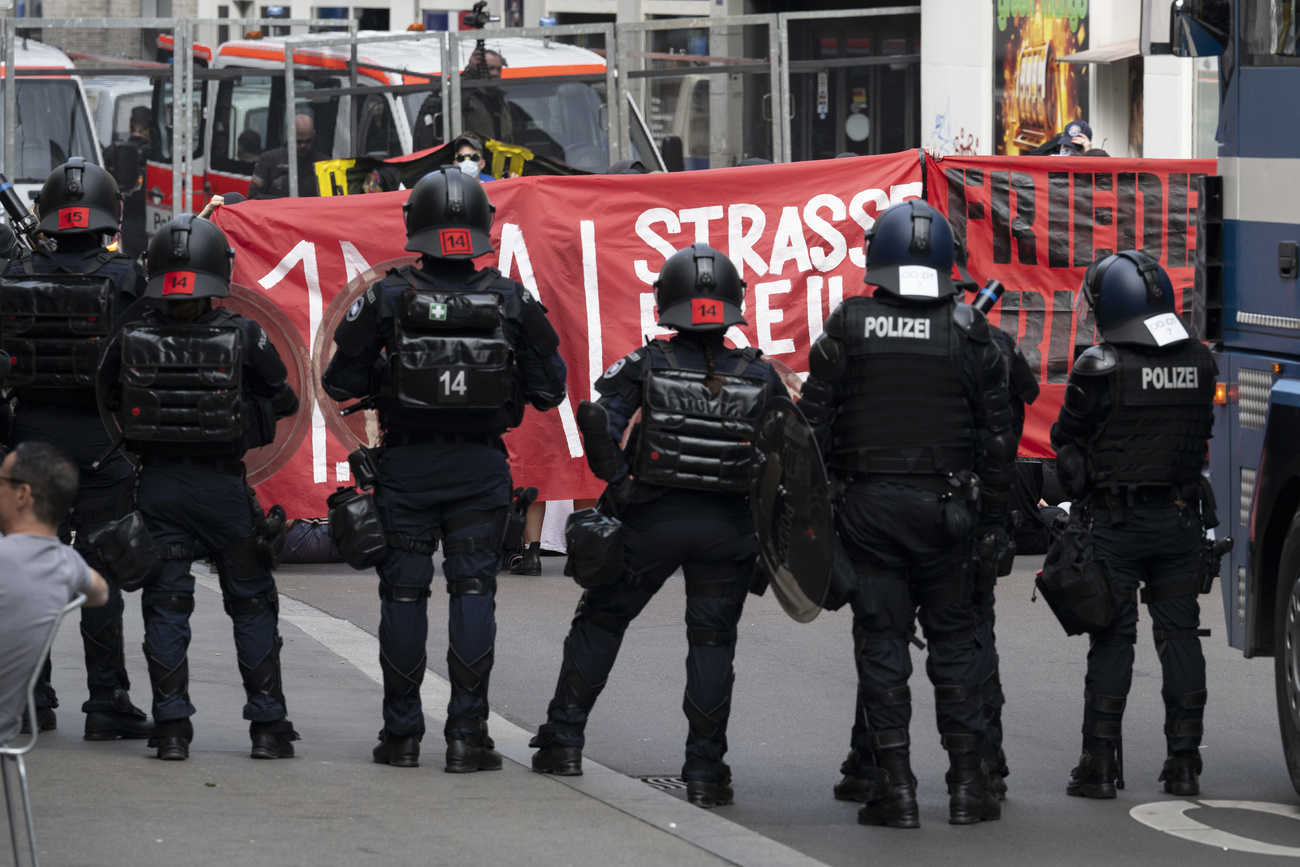Swiss press unimpressed with G20 outcomes

The Swiss press has delivered its verdict on the results of the G20 summit in Cannes on Friday - and remains decidedly underwhelmed.
Editorialising on Saturday, papers noted that the summit was dominated by the euro zone debt crisis as escalated by the Greek Prime Minister’s snap decision earlier in the week to call a referendum on the acceptance or not of the latest bailout package.
As such, many papers noted, very little of French President Nicolas Sarkozy’s original agenda for the summit was achieved, and non-European countries left with nothing.
In a front-page editorial, the best thing that French-language Le Temps could say about the summit was that “France had avoided catastrophe”.
The paper said that the previously declared goals of French President Nicolas Sarkozy to use the summit to garner international agreement on reforming the international monetary system, new regulations for the raw materials market and the fight against price fluctuations in agriculture and energy did not move past declarations of intent.
French Robin Hood
Le Temps said that the only point that Sarkozy had “saved” was his emerging as the “destroyer of financial capitalism” and that his image had profited from appearing beside a smiling US president Barack Obama.
“The financial transaction tax in black and white on the final communiqué, a group of pioneering countries led by the French Robin Hood and his German sidekick decided to advance the cause on their own: and the other members of the G20 let them do it,” Le Temps noted.
Syndicated in the Zurich-based Tages-Anzeiger and Bern’s Der Bund, Oliver Meiler described the G20 summit as exceptional only because of the Greek crisis illustrated “The New World Order”.
This, wrote Meiler, was evident in the humiliation of Greek Prime Minister George Papandreou at the hands of Paris and Berlin; a “weak” Italy who had been forced to ask the International monetary fund to monitor the country’s budget; suspicious Chinese leaders who promised nothing; and ambitionless Americans whose president arrived at the summit without an agenda.
Democracy rules
Some Swiss papers were hardly able to contain their glee at the disarray consuming Europe.
Editorialising in the Basler Zeitung, Markus Somm said European countries need to reconsider their democracy, and that if they looked to Switzerland’s form of direct democracy “they might learn something”.
Somm said the debt-ridden countries of the euro zone were the result of politicians who for years had promised generous welfare systems to citizens in order to get elected, without knowing how to pay for them.
“It has been repeatedly demonstrated in the past that the people are wiser and more economical than their own politicians,” Somm wrote. “In countless referenda, the Swiss voluntarily abstained from the so-called blessings of the welfare state – because they know who pays for it in the end.”
The Neue Zürcher Zeitung (NZZ) also picked up on the issue of democracy in the euro zone countries, noting that “the reaction of the elite EU politicians to the proposal of a Greek referendum demonstrated their dislike of including the people”.
On its own
In a scathing editorial titled “Luckily the G20 summit can’t help the euro zone”, the NZZ questioned whether a collapse of the euro was even avoidable given questions surrounding Italy’s ability to service its huge debt.
“The startling breakthrough of the summit, which from an official point of view was more like a defeat, was that German Chancellor [Angela] Merkel made it clear, in dealing with the Greek government’s proposed referendum that Greece must either adopt the euro rescue and reform plan or fully renounce support payments and leave the euro zone … Now the option to exit the euro zone seems to lie in the realm of possibility,” the NZZ said.
The paper said the refusal of countries such as China to commit to contributing to the European Union’s rescue fund made it clear to non-European countries that the euro zone “must solve its problems on its own”.
Several countries in the eurozone are facing crippling debts.
Greece, Portugal and the Irish Republic have all received international help to deal with them.
Those three, and also Italy, Spain and Cyprus have seen their credit worthiness downgraded this year, reflecting concern that they will be unable to pay off their debts.
In July the eurozone countries and the International Monetary Fund agreed to give Greece a second bailout of €109 billion(SFr132), on top of the €110 billion granted a year ago.
This Greek bailout was part of a comprehensive package to shore up the single currency.
The governments also agreed to give the European Financial Stability Fund (EFSF) more powers to help indebted countries.
A deal reached in October saw banks agree to write off 50 per cent of Greece’s debt, and an agreement to boost the EFSF to €1 trillion.
But that deal was thrown into doubt when Greek Prime Minister Geroge Papandreou announced he would put the acceptance of the deal to a referendum.
Under pressure from Paris and Berlin, Papandreou backed away from the referendum plan and only narrowly won a confidence vote on his leadership in the Greek parliament on Friday.

In compliance with the JTI standards
More: SWI swissinfo.ch certified by the Journalism Trust Initiative












You can find an overview of ongoing debates with our journalists here . Please join us!
If you want to start a conversation about a topic raised in this article or want to report factual errors, email us at english@swissinfo.ch.